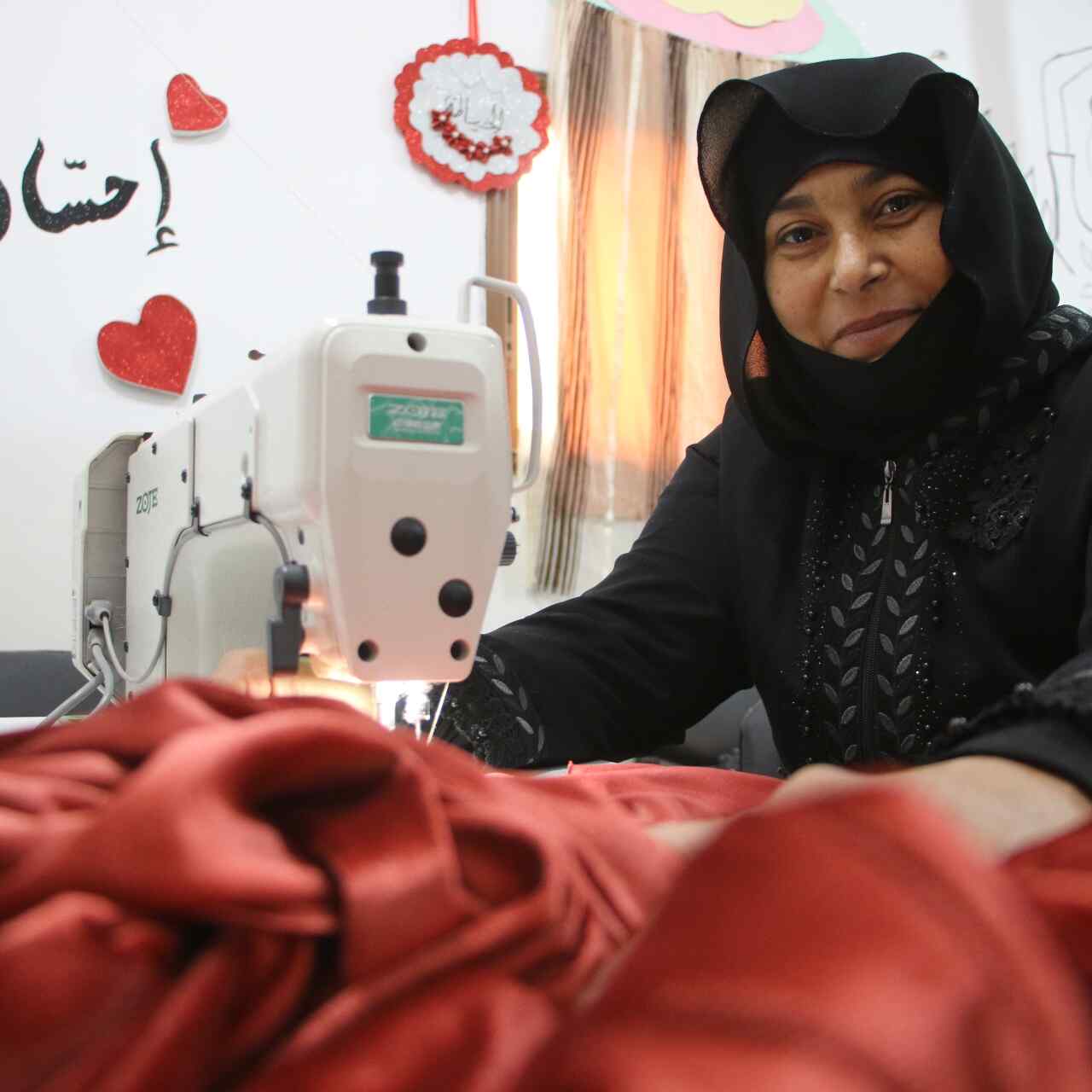
How do crises impact mental health?
After enduring displacement and the loss of her son, Mustafa received mental health support. Read on to learn about her path to recovery.

After enduring displacement and the loss of her son, Mustafa received mental health support. Read on to learn about her path to recovery.
Nearly 1 billion people around the world live with mental health conditions. However, those facing crises, like war, climate disaster, or a pandemic, experience increased barriers to receiving mental health care.
Ensuring mental health support for individuals in crisis situations is a fundamental human right that must be safeguarded.
Below, we explore how emergencies impact mental health and explain how the International Rescue Committee (IRC) is responding to this global challenge.
Emergencies can cause significant stress and have a negative impact on the mental health of individuals, families and societies as a whole. During emergencies, the healthcare institutions and support networks that people rely on are also often compromised.
It is very common for people to experience psychological distress during emergencies. One in five individuals affected by conflict will experience mild, moderate, or severe mental health conditions, which may include depression, anxiety, post-traumatic stress disorder, bipolar disorder, or schizophrenia.
Evidence suggests that rates of mental health disorders can double during the peaks of crises. Moreover, mental health challenges can adversely impact a person’s physical wellbeing and are often detrimental to children’s education.
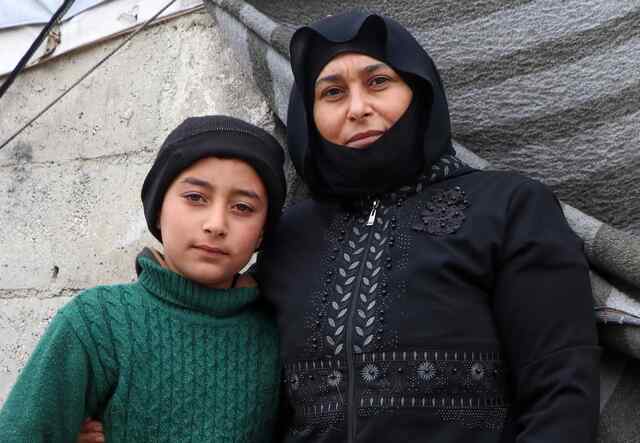
Whether it be a flood that destroys a hospital or a conflict that separates families, crises create immense barriers to accessing essential services, including mental health care.
For example, the flooding in Libya has displaced more than 40,000 people and left over half of the health facilities in affected areas either partially operational or completely non-functional at a time when they’re needed most.
“Many are grappling with severe mental distress,” explains IRC Libya medical team leader, Majduldeen Alhlafi. “The emotional trauma caused by this disaster is profound and so there is a need for significant investment in mental health by the international community.”
There is now a very real need for mental health services in crisis affected communities. But in order to scale up this critical intervention the international community will need to ensure that it adequately funds activities that support people's mental health.
Donors often overlook the mental health needs of crisis-affected communities, leaving many survivors without the support they need to recover.
Low-income countries are often hit hardest by crises. Unfortunately, they do not have strong mental health care systems in place. In these countries, there is only one mental health worker for every 100,000 people. In stark contrast, high-income countries have more than 60 mental health workers per 100,000 people.
An increase in funding is needed to improve the reach of mental health and psychosocial support (MHPSS) interventions in crisis-affected regions.
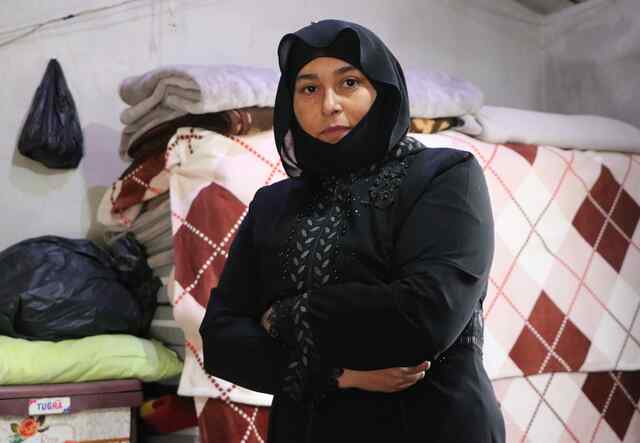
The IRC recognizes that mental health is an essential pillar of overall wellbeing for all. We work directly in crisis-affected communities and with partner organizations to best meet the mental health needs of vulnerable populations.
We provide safe spaces, psychosocial support, counseling, primary health care and other services to ensure that people can receive care and manage treatment for themselves and their families, from the earliest stages of a mental health crisis through recovery.
In 2021, IRC teams supported more than 123,000 consultations, serving over 100,000 clients at the primary healthcare level and almost 200,000 individuals through mental health and psychosocial support community activities.
The IRC is integrating innovative strategies and new partnerships to improve our ability to meet the mental health needs of communities impacted by crises.
The IRC is piloting the InforMH program in Jordan to bridge a mental health treatment gap in the country and support the mental health care of people affected by crisis. This program uses artificial intelligence (AI) to assess the mental health needs of users and subsequently recommends tailored services that help users address mental health challenges. Instead of offering a direct service, InforMH connects users with existing and locally available resources, thereby improving the effectiveness of local healthcare systems.
InforMH recommends services like formal support from trained mental health professionals, informal support from engaged community support groups, and self-care tactics that can help users manage their mental health challenges more independently. The InforMH program uses WhatsApp messaging to regularly follow up with users, providing personalized suggestions and easy accessibility.
InforMH plans to scale up its services with a goal of reaching 1.65 million users across Jordan.
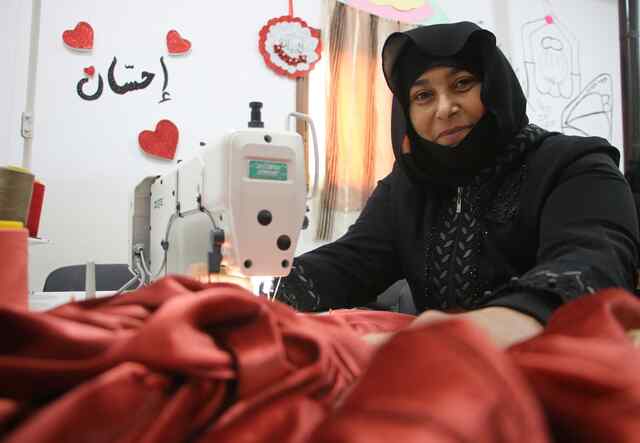
The IRC partnered with Pinterest to establish the Catalyzing Resilience in Emergencies (CaRE) Fund to address the mental health needs of people in crisis This Fund will expand mental health care for communities affected by crisis, gather important evidence and advocate for systemic changes that improve access to mental health care.
“The IRC understands that mental health is essential to the wellbeing of the communities we serve and our team members around the world,” Mesfin Teklu Tessema, Senior Technical Director of Health at the IRC. “We are grateful for Pinterest’s commitment and partnership as we strive to both raise awareness about the importance of mental health and to deliver impactful, evidence-based programs to support the mental health and wellbeing of our communities.”
Mustafa was displaced from her home in northwest Syria after an airstrike killed one of her sons while he was at work. Mustafa and her family moved to another village where they lived for one year before they were forced to move once more as bombings grew near.
Now, Mustafa and her children live in a refugee camp in western Syria. This is where she began participating in MHPSS services provided by the IRC.
“I’ve experienced so many events that impact mental health and lead to depression,” says Mustafa. “I came to the center and attended support sessions.”
With over 110 million people displaced around the world, the need for mental health services is higher than ever. To other displaced people around the world, Mustafa says,
“Life deserves that one lives to the fullest and to keep learning and not stop at a certain point.”
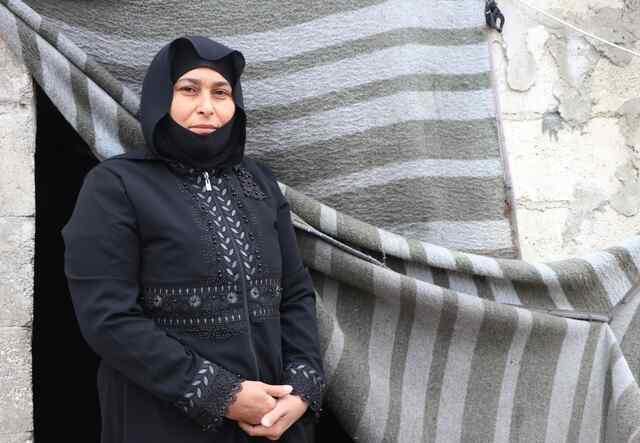
In 2022, IRC teams supported more than 120,000 consultations, serving over 70,000 clients at the primary healthcare level and almost 320,000 individuals through community activities.
We recognize the importance of helping people in crisis overcome barriers to treating mental health.